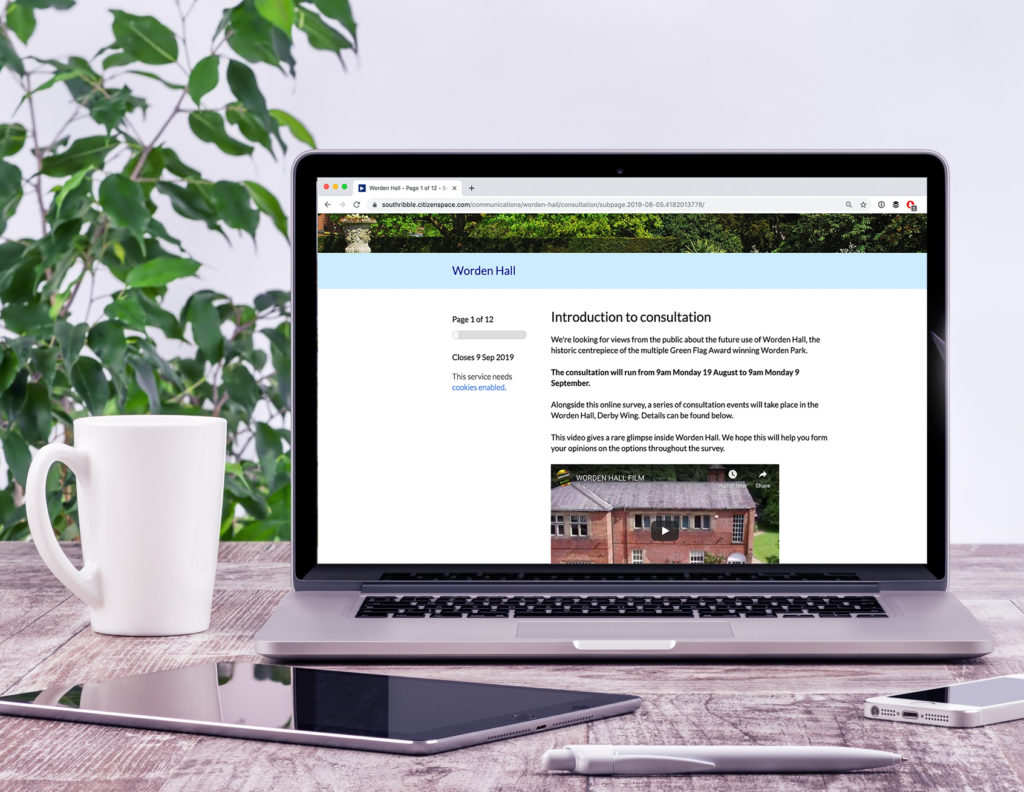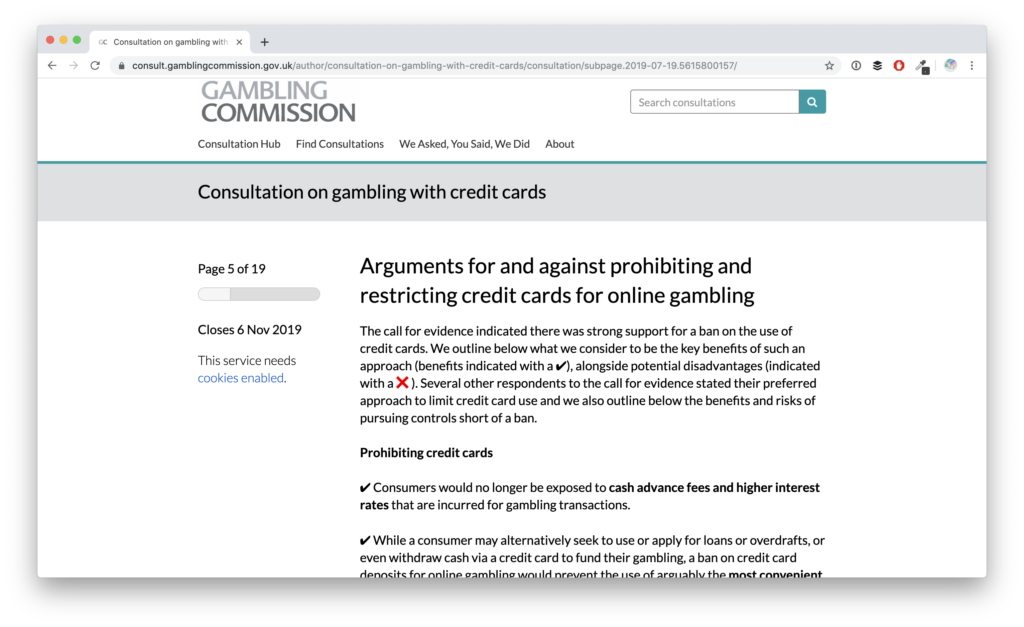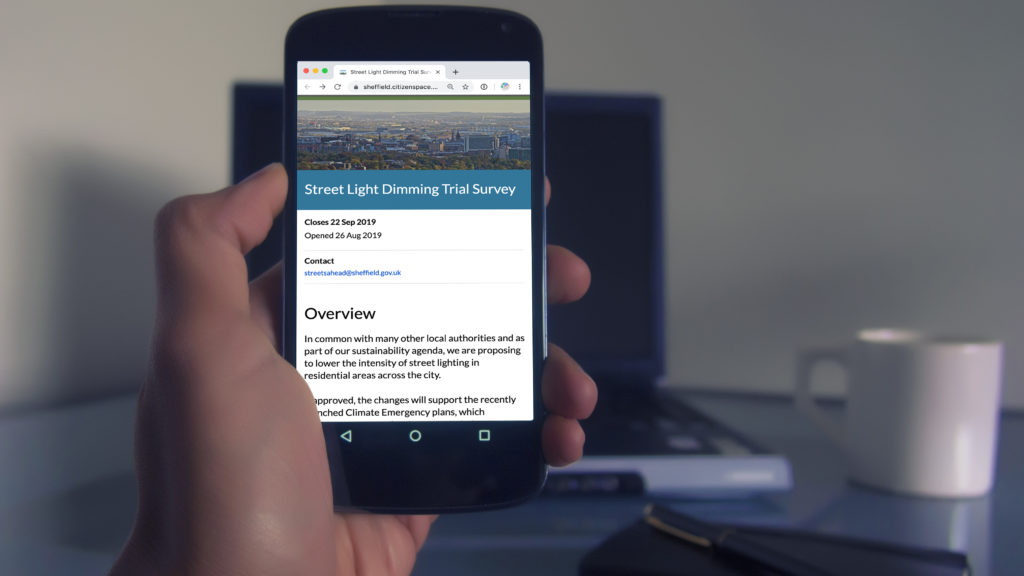It’s the weekend! Which means it’s time to celebrate some of the interesting work our customers have been doing lately. There are over 18k consultations on the Citizen Space Aggregator right now, so we’ve picked a small selection for your perusal.
South Ribble Council are consulting on the future of Worden Hall

This is a great consultation on the future of a listed building. There’s an introductory video that shows footage of the hall’s interior, which is currently off-limits to the public, which is a nice touch. What I like about this is it’s very thorough: the three options they’re presenting are outlined in detail, each with their own section of the consultation. Each option has an overview plan embedded in a fact bank and its projected costs and income are made clear. The option that will bring in an income high enough that the Council doesn’t make a loss would mean significantly restricting public access, so there’s a trade-off involved. They’ve handled this by summarising the main points of each option in a ‘confirmation of understanding’ page, where respondents tick to signify they’ve read each of the main points. There are also associated consultation events, which are linked under the consultation, so South Ribble is putting a lot of groundwork into making sure they get the public’s views on this one.
The Gambling Commission are consulting on using credit cards in gambling

Gambling Commission always consult to a high standard and this is no exception. What’s interesting about this one, though, is that they’ve treated the first few pages as ‘information-only’. They’re using them as a way to feed back to respondents the results of a call for evidence they ran on the subject earlier in the year. What this does is prompts people to fully read previous results before they can start the consultation, leading to more informed and thoughtful responses.
Sheffield City Council is consulting on lowering street lighting levels

Sheffield have been running trials in a few residential areas on reducing street lighting output. By lowering lighting levels, they estimate they will save 380 tonnes of carbon emissions, as well as reducing light pollution and enabling residents to ‘derive greater enjoyment from the night sky’. It’s routed in quite an interesting way, based on whether residents have noticed/been affected by the changes in any way. Those that reply ‘yes’ are taken to a set of subsequent questions and those that say ‘no’ to another.
Well, that’s all for now. Wishing you a lovely weekend wherever in the world you are!